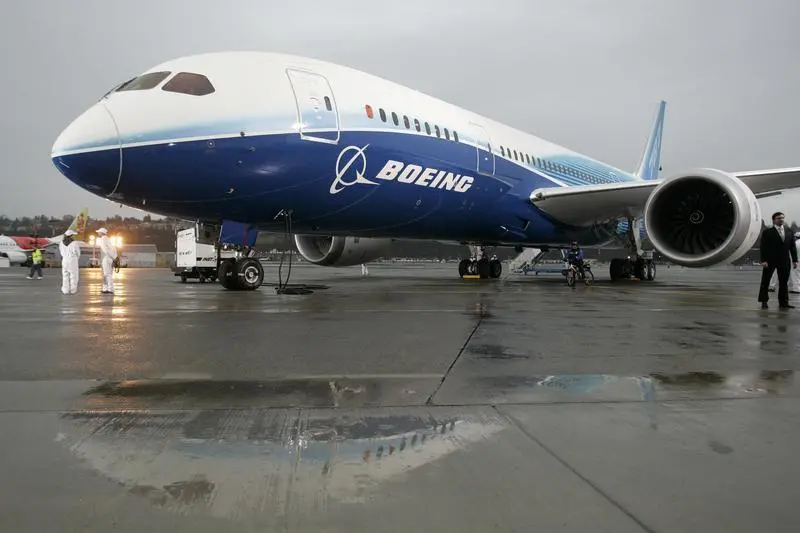PHOTO
Boeing faces a crucial test with employees, customers and investors after announcing 10% job cuts and $5 billion in charges as a crippling machinists strike enters a fifth week.
The planemaker plans a series of internal meetings this week to lay out the jobs plan, which could lean at least partially on involuntary cuts whose costs and impact on the retention of coveted skills are easier to manage, industry sources said.
Boeing declined to comment. Its shares fell 1.7% in pre-market trading.
In a surprise late Friday move, Boeing announced 17,000 job cuts and pre-announced quarterly earnings with $5 billion of charges led by a new delay to 777X and the ending of civil 767 production. It did not give a timeline for job reductions.
The delay of one year in 777X deliveries to 2026 enshrines a delay already widely anticipated in the industry after certification and testing delays, and means the planned successor to the 777 mini-jumbo would be six years late.
Emirates Airline President Tim Clark, whose initial order for 150 jets helped launch the world's largest twin-engined jet more than a decade ago, hit back on Monday.
"Emirates has had to make significant and highly expensive amendments to our fleet programmes as a result of Boeing’s multiple contractual shortfalls and we will be having a serious conversation with them over the next couple of months,” he said in a rare written statement on the issue of delivery delays.
He also called into question Boeing's new timetable. Citing the suspension of a certification testing milestone and the ongoing four-week-old strike, he said: "I fail to see how Boeing can make any meaningful forecasts of delivery dates".
Emirates is the largest user of the 777 jet family, a long-distance best-seller whose original success has been clouded by delays to its successor and the crisis engulfing Boeing's smaller 737 cash-cow over safety and quality issues.
The latest crisis comes at a time when Boeing's markets are growing and many of its rivals are scooping up scarce labour to meet demand and relieve pressure on aerospace supply chains.
"The trick will be not losing the 10% of people you want to keep, which is even more important than usual in the post pandemic skill shortage environment," said Agency Partners analyst Nick Cunningham.
Analysts said preliminary results, including just over $10 billion of gross cash, would ease some near-term pressure but noted Boeing would still need to raise money by year-end.
JP Morgan said it would also give Boeing's management a bit more dry powder in its battle with the machinists union.
Reaching a deal to end the stoppage is critical for Boeing, which depends on the 737 production for much of its cash.
Ratings agency S&P has warned Boeing risks losing its prized investment-grade credit rating.
The union representing striking workers said on Friday the decision to halt the 767 freighter was troubling and dismissed Boeing's claims about the conduct of labour talks as groundless.
(Reporting by Abhijith Ganapavaram, Tim Hepher, Joe Brock Editing by Christina Fincher)





















